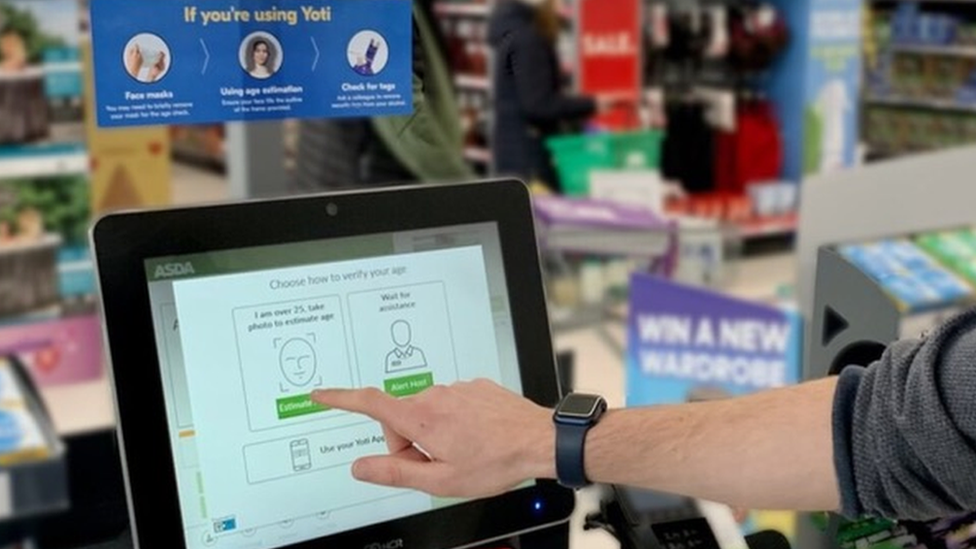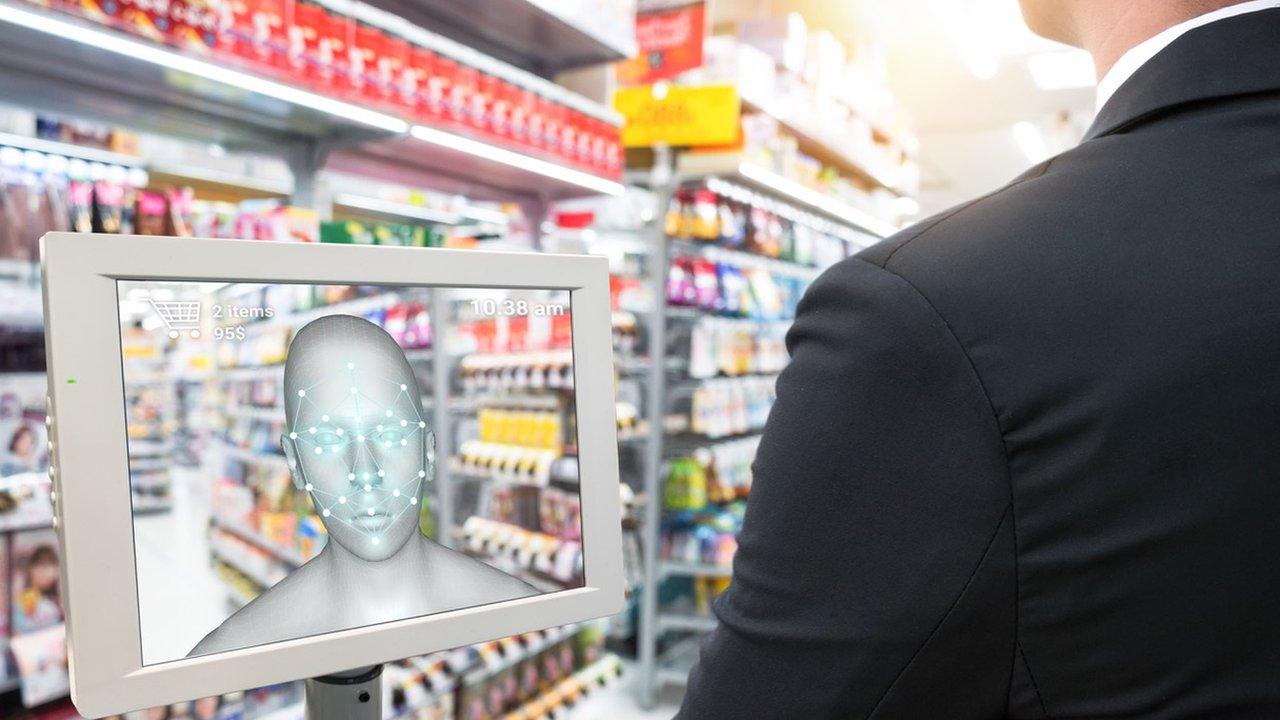Supermarket cameras to guess age of alcohol buyers
- Published

The system can work out if a face is older or younger than 25
Major supermarket chains have begun testing an automated age-verification system, to avoid the wait for staff at self-checkouts when buying alcohol.
The trial will use cameras that can estimate each customer's age.
It is part of a Home Office test of technologies to assist with the selling of alcohol.
Asda, Co-op and Morrisons are installing the system in some shops. The same technology is already used in Aldi's checkout-free shop in London.
If customers consent, the camera will guess their age, using algorithms trained on a database of anonymous faces.
If it decides they are under 25, they will need to show ID to a member of staff.
'Keep pace'
"Waiting for age approval at the self-checkout is sometimes frustrating for shoppers," Robin Tombs, chief executive of Yoti, the company providing the technology, said.
"Our age-verification solutions are helping retailers like Asda meet the requirements of regulators worldwide and keep pace with consumer demands for fast and convenient services, while preserving people's privacy."
This is not facial recognition, Yoti is keen to stress, which tries to match individual faces to those on a database.
And the system will not retain the images it takes.
Privacy concerns
Tested on more than 125,000 faces aged six-60, the algorithm, on average, guessed their age to within 2.2 years - 1.5 among 16-20-year-olds.
Asda's senior director of retail innovation Geri Hebberd said the supermarket was excited to test the technology and "looked forward to seeing what our customers think".
"We know how time pressed some of our customers are, so we always want to make things quicker and easier for them when they shop with us," she added.
Privacy concerns were raised, in 2020, when 18 Co-op shops tested a facial-recognition system, from start-up Facewatch, that alerted staff to customers with a record of "theft or anti-social behaviour".
And meanwhile, Sainsbury's tested a hidden artificial-intelligence-enabled detector that sent video footage to security staff if customers pocketed an item.
Related topics
- Published18 January 2022

- Published10 December 2020
